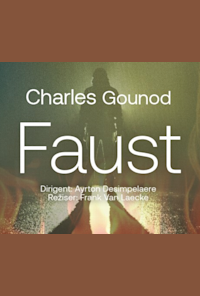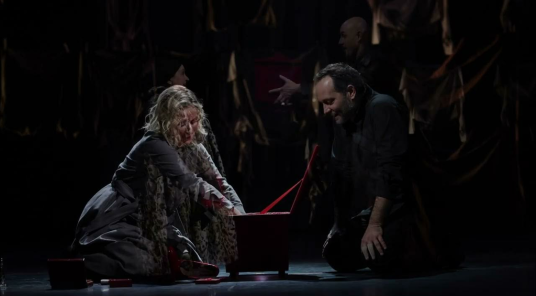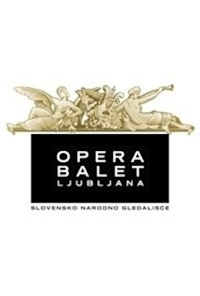Goethe's masterpiece, fragmented in Gounod's musical disguise through the prism of the transformative power of love, will be presented in the fourth opera premiere of the season. Gounod's Faust is considered one of the most picturesque romantic works in world opera literature. Mephistopheles' gift of youth, which is at the same time the curse of Faust's soul, is saved by a simple but most powerful force - love (for) Margaret. The archetypal story of the struggle between good and evil, which ends in the apotheosis of love, still today greatly excites the depths of the human spirit and acts cathartically
The legend of Dr. Faust - a wounded warlord, astrologer and alchemist of dubious fame who sold his soul to the devil to gain all the treasures, powers and pleasures of the world for a short time - gained mythic proportions soon after its first literary treatment in the late 16th century. With the motif of Faust's search for the ultimate truth and his denial of conventional views, it became the subject of numerous adaptations and interpretations in the following centuries. The unusual literary material not only resonated among writers, poets and playwrights (Marlowe, Lessing, Goethe, Klinger, Grabbe, Mann) and visual artists, but also attracted the attention of composers - alongside Ignaz Walter, Gaspare Spontini, Ludwig Berhlio, Hector Arrig Boit and many others also by the French romantic composer Charles-François Gounod.
Gounod (1818–1893) summed up the material for the opera after the first part of Goethe's poem Faust , which he became acquainted with in a French translation in 1838. Librettists Jules Barbier and Michel Carré, who wrote the text at the suggestion of a Weimar classic, did not try to spirit, but they contented themselves only with the central love story between the title character and a simple girl, Margaret. Despite moving away from the literary proposal and adaptation of Margaret's character and destiny, librettists are credited with skillful rendering of scenes, a good selection of colorful and enticing paintings, and an efficient distribution of dramatic highlights and lyrical passages. the musician largely realized the possibilities offered to him by the libretto.
Faust was baptized in 1859 at the Théâtre Lyrique in Paris, and although the work of the composer, who successfully established typical French features in his work, seemed too "German" to some, there was no shortage of critics who performed operas full of beautiful melodies. accused of non-melodicity, Faust became popular with the audience, and his triumphant march to the European opera stages began a decade later, in 1869, when Gounod enriched his work at the Paris Opera with recitatives, with individual points (Valentine's Aria, Mephisto's Fourth Act) ) and with a ballet almost twenty minutes long, thus bringing Faust very close to the structure of the great opera.
















